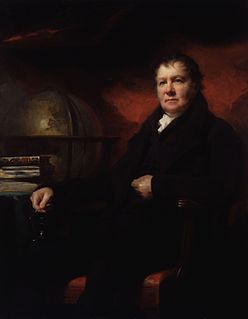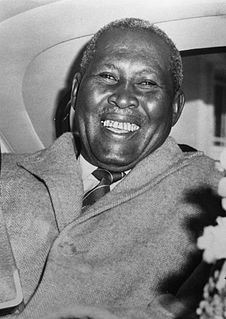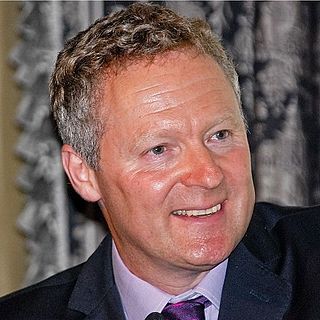A Quote by Harold B. Lee
To some it may seem old-fashioned to speak of virtue and chastity, honesty, morality, faith, character, but these are the qualities which have built great men and women and point the way by which one may find happiness in the living of today and eternal joy in the world to come. These are the qualities which are the anchors to our lives, in spite of the trials, the tragedies, the pestilences, and the cruelties of war which bring in their wake appalling destruction, hunger, and bloodshed
Quote Topics
Anchors
Appalling
Bloodshed
Bring
Built
Character
Chastity
Come
Destruction
Eternal
Faith
Find
Great
Great Men
Happiness
Honesty
Hunger
Joy
Lives
Living
May
Men
Men And Women
Morality
Old
Old-Fashioned
Our
Our Lives
Point
Qualities
Seem
Some
Speak
Spite
Today
Tragedies
Trials
Virtue
Wake
War
Way
Which
Women
World
Related Quotes
America treasures the relationship we have with our many Muslim friends, and we respect the vibrant faith of Islam which inspires countless individuals to lead lives of honesty, integrity, and morality. This year, may Eid also be a time in which we recognize the values of progress, pluralism, and acceptance that bind us together as a Nation and a global community. By working together to advance mutual understanding, we point the way to a brighter future for all.
The greatest of all our human concepts is the immortality of the personality and the eternal glory of the human soul. Throughout eternity you will be yourself and I will be myself, with quickened senses amplified powers of perception, and vastly increased capacity for reason, understanding, love, and happiness, all of which are qualities we may develop now. Our machines wear out, our barns fall down, and our substance goes back to the dust, but our finest collection of personal qualities will have eternal life.
God grant that each of us here today may so live that all among us, and with us, may see, not us, but that which is divine and comes from God. With that vision of what those who have lost their way may become, my prayer is that they may receive strength and resolution to climb higher and higher and upward and onward to that great goal of eternal life and also that I may do my part in seeking to show by example, as well as by precept, that which will be the best of which I am capable of doing.
At times it may seem that our trials are focused on areas of our lives and parts of our souls with which we seem least able to cope. Since personal growth is an intended outcome of these challenges, it should come as no surprise that the trials can be very personal-almost laser guided to our particular needs or weaknesses.
It is understandable how some people could give way to this kind of pervasive pessimism, but we speak of a gospel which brings good tidings of great joy and this must be reflected in our lives, if we are to be believable especially as we suggest to others that there is, in fact, not only a better way, but also the way. Scriptures that speak of man as a being who "might have joy" have more impact when falling from the lips or pens of men and women whose lives give fresh evidence of the validity of that scripture.
The Author of nature has not given laws to the universe, which, like the institutions of men, carry in themselves the elements of their own destruction; he has not permitted in his works any symptom of infancy or of old age, or any sign by which we may estimate either their future or their past duration. He may put an end, as he no doubt gave a beginning, to the present system at some determinate period of time; but we may rest assured, that this great catastrophe will not be brought about by the laws now existing, and that it is not indicated by any thing which we perceive.
Every man is prompted by the love of himself to imagine that he possesses some qualities, superior, either in kind or degree, to those which he sees allotted to the rest of the world; and, whatever apparent disadvantages he may suffer in the comparison with others, he has some invisible distinctions, some latent reserve of excellence, which he throws into the balance, and by which he generally fancies that it is turned in his favour.
The words that reverberate for us at the confines of this long adventure of rebellion are not formulas for optimism, for which we have no possible use in the extremities of our unhappiness, but words of courage and intelligence which, on the shores of the eternal seas, even have the qualities of virtue.
Our possibilities of happiness are already restricted by our constitution. Unhappiness is much less difficult to experience. We are threatened with suffering from three directions: from our own body, which is doomed to decay and dissolution and which cannot even do without pain and anxiety as warning signals; from the external world, which may rage against us with overwhelming and merciless forces of destruction; and finally from our relations to other men. The suffering which comes from this last source is perhaps more painful to us than any other.
There are five dangerous faults which may affect a general: recklessness, which leads to destruction; cowardice, which leads to capture; a hasty temper, which can be provoked by insults; a delicacy of honour, which is sensitive to shame; over-solicitude for his men, which exposes him to worry and trouble.
To engage human energy, human skill, and human talent in the service of peace, for the alternative is unthinkable - war, destruction, and desolation; and to build a world community which will stand as a lasting monument to the millions of men and women, to such devoted and distinguished world citizens and fighters for peace as the late Dag Hammarskjöld, who have given their lives that we may live in happiness and peace.





































